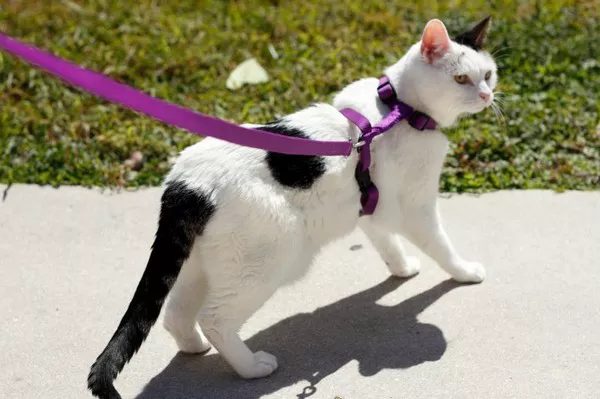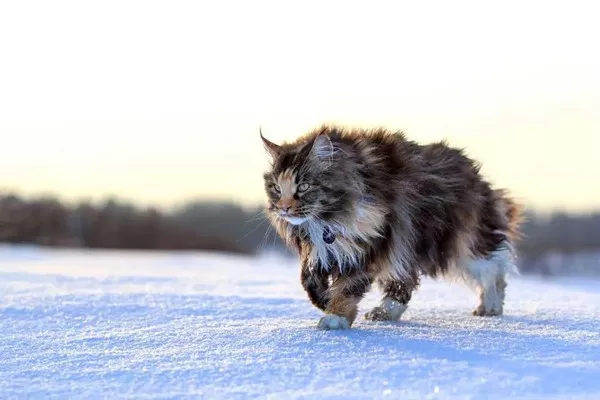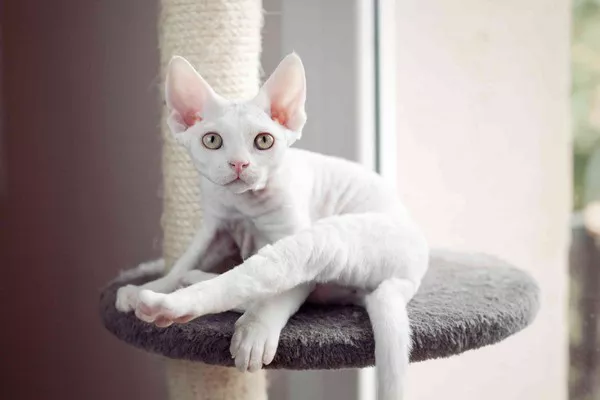Welcoming a cat into your home is a significant decision that can bring immense joy, companionship, and love into your life. However, with so many different breeds to choose from, finding the right cat for your lifestyle, personality, and preferences can be a daunting task. In this comprehensive guide, we’ll delve into the characteristics of various cat breeds, explore their temperaments, energy levels, and grooming needs, and provide practical tips for selecting the perfect feline companion to suit your individual needs and preferences.
Understanding Breed Characteristics: A Closer Look at Feline Personalities
Before diving into the process of choosing a cat breed, it’s essential to understand that each breed possesses unique traits, personalities, and characteristics that can influence their suitability as a pet. Here’s a breakdown of some common breed characteristics to consider:
Temperament and Personality:
Affectionate and Sociable Breeds: Some cat breeds are known for their affectionate and sociable nature, enjoying human company and seeking out attention and affection. Breeds such as the Ragdoll, Maine Coon, and Siamese are often praised for their friendly and outgoing personalities, making them excellent companions for families and individuals seeking a lap cat.
Independent and Reserved Breeds: Conversely, other cat breeds may be more independent and reserved, preferring solitude and quiet moments of reflection. Breeds such as the British Shorthair, Russian Blue, and Scottish Fold tend to be more reserved in nature, valuing their personal space and autonomy while still forming strong bonds with their human companions.
Energy Levels and Activity Levels:
High-Energy and Playful Breeds: If you lead an active lifestyle and enjoy interactive play and exercise with your cat, consider choosing a breed known for its high energy levels and playful demeanor. Breeds such as the Bengal, Abyssinian, and Oriental Shorthair thrive on mental and physical stimulation, requiring regular playtime and enrichment activities to keep them happy and engaged.
Low-Energy and Laid-Back Breeds: On the other hand, if you prefer a more relaxed and laid-back companion, opt for a breed with lower energy levels and a calm temperament. Breeds such as the Persian, Exotic Shorthair, and British Shorthair are known for their serene demeanor and preference for lounging and leisurely activities, making them ideal pets for individuals with a quieter lifestyle.
Grooming Needs and Maintenance:
Long-Haired Breeds: Cats with long, luxurious coats require regular grooming and maintenance to keep their fur free of tangles, mats, and debris. Breeds such as the Maine Coon, Norwegian Forest Cat, and Persian have dense, thick coats that may require daily brushing to prevent matting and shedding.
Short-Haired Breeds: Conversely, cats with short coats typically require less grooming and maintenance, making them ideal for individuals with busy schedules or limited grooming experience. Breeds such as the American Shorthair, Bengal, and Sphynx have short, sleek coats that are easy to care for and require minimal grooming.
Assessing Lifestyle Compatibility: Matching Breed Traits with Your Needs
Once you have a clear understanding of the characteristics and traits associated with different cat breeds, it’s time to assess your own lifestyle, preferences, and needs to determine which breed is the best fit for you. Here are some key factors to consider when evaluating lifestyle compatibility:
Living Arrangements:
Apartment Living: If you live in an apartment or condominium with limited space, consider choosing a breed that is well-suited to indoor living and does not require access to outdoor space. Breeds such as the Russian Blue, Scottish Fold, and Ragdoll are known for their adaptability to apartment living and tend to be less vocal and active indoors.
House with Outdoor Access: If you have a house with access to a safe outdoor environment, you may opt for a breed that enjoys exploring and roaming outdoors. Breeds such as the Bengal, Abyssinian, and Norwegian Forest Cat are known for their adventurous spirit and love of outdoor exploration, provided they have access to a secure outdoor enclosure or supervised outdoor time.
Allergies and Sensitivities:
Hypoallergenic Breeds: If you or someone in your household suffers from allergies to cats, consider choosing a hypoallergenic breed that produces fewer allergens and is less likely to trigger allergic reactions. Breeds such as the Sphynx, Balinese, and Siberian are often touted as hypoallergenic options, although individual sensitivity may vary.
Family Dynamics:
Children and Other Pets: If you have children or other pets in your household, it’s essential to choose a cat breed that is known for its compatibility with families and other animals. Breeds such as the Maine Coon, Ragdoll, and American Shorthair are typically good-natured and tolerant of children and other pets, making them ideal choices for multi-pet households.
Making an Informed Decision: Research, Preparation, and Patience
Selecting the perfect breed of cat requires careful research, preparation, and patience to ensure a successful match between you and your feline companion. Here are some practical tips for making an informed decision:
Research Breed Characteristics: Take the time to research different cat breeds and their associated characteristics, temperaments, and care requirements. Consider consulting reputable breed guides, websites, and breed-specific forums to gather information and insights from experienced cat owners and breed enthusiasts.
Visit Shelters and Rescue Organizations: Consider visiting local animal shelters, rescue organizations, and adoption events to meet cats of various breeds and personalities. Many shelters have knowledgeable staff and volunteers who can help match you with a cat that suits your lifestyle and preferences.
Meet and Interact with Potential Pets: When considering a specific cat or breed, spend time interacting with the individual animals to assess their temperament, energy level, and compatibility with your lifestyle. Pay attention to factors such as sociability, friendliness, and responsiveness to human interaction.
Consider Adoption: While choosing a specific breed can be appealing, don’t overlook the option of adopting a mixed-breed cat from a shelter or rescue organization. Mixed-breed cats can possess a unique blend of traits and personalities that make them wonderful companions, and adopting from a shelter gives you the opportunity to provide a loving home to a cat in need.
Consult with Veterinarians and Breed Experts: Before making a final decision, consider consulting with veterinarians, breeders, or other cat experts to gain additional insights and advice on choosing the right breed for your lifestyle and circumstances.
Conclusion: Finding Your Perfect Feline Match
In conclusion, selecting the right breed of cat requires careful consideration of factors such as temperament, energy level, grooming needs, and lifestyle compatibility. By researching different breeds, assessing your own preferences and needs, and taking the time to meet and interact with potential pets, you can make an informed decision that will result in a fulfilling and rewarding relationship with your feline companion. Whether you’re drawn to the playful antics of a Bengal, the gentle affection of a Ragdoll, or the independent spirit of a Russian Blue, there’s a perfect cat breed out there waiting to become your loyal and loving companion for years to come.


























